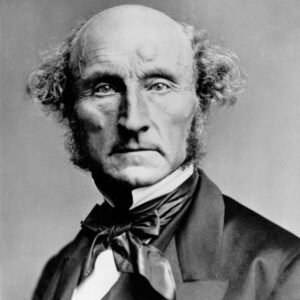John Stuart Mill was born on May 20th, 1806, in London, United Kingdom. He was the eldest son of the British philosopher, economist, and historian James Mill. Both of his parents believed in discipline and education. Thus, at the age of only 3, young John started to study Greek. By the age of 6, he began to read significant works by Plato, Herodotus, or Homer.
Vital for his education was also his father’s friend, the founder of utilitarianism Jeremy Bentham and Bentham’s brother Samuel. However, the pressure was high and thus spent time in a health resort in France. Throughout his life, he had mental health issues on multiple occasions.
Unable to finish law school, John Stuart Mill joined the East India Company. After his father died in 1836 until 1856, he was in charge of the companies relations with India. He retired from the company in 1857.

✟ May 8, 1873, Avignon, France
The Political Life of John Stuart Mill
Mill dedicated his later life to the study of politics, philosophy, and the economy. As a member of the Liberal party, the citizens of Westminster elected him a member of parliament in the 1865 elections. He demanded more freedom for Ireland and, thanks to Mary Wollstonecraft, was the first to call for women’s suffrage. Besides, he was also the rector of the University of St. Andrews in Scotland at the time. After his mandate ended in 1868, he moved to France.
Just like his father and Jeremy Bentham, he was a utilitarianist. Thus, one’s actions are defined by how much good and happiness they bring. Besides, he was a classical and social liberal. His support of women voting rights was very progressive at the time.
Regarding his work on politics, On Liberty is the most important. The fundament of the 1859 essay is that everyone has the right to do as they wish. That is until they interfere with others’ rights and freedom. Further, his Considerations on Representative Government from 1861 also made an impact.
John Stuart Mill was married to a lawyer and fellow philosopher, Harriet Taylor Mill. He died on May 8th, 1873, in Avignon, France.
“He who knows only his own side of the case knows little of that.“
John Stuart Mill
